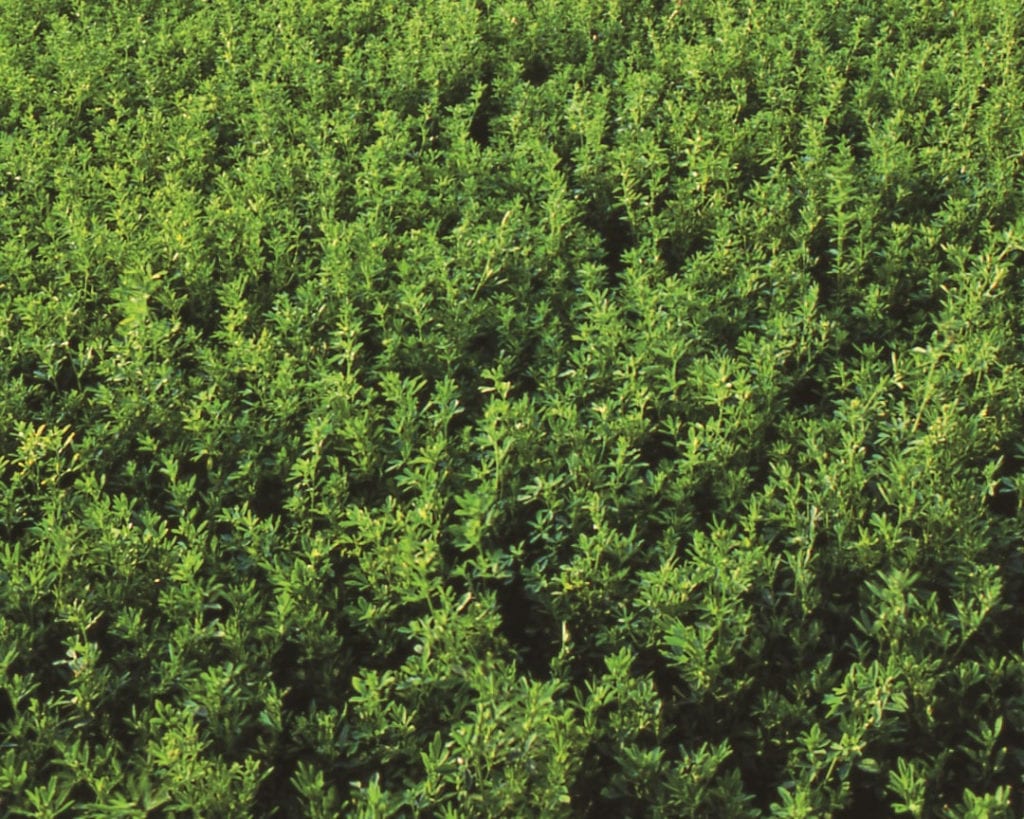
Late-summer-planted alfalfa is sometimes a good option for establishing an alfalfa field if spring seeding was not successful.
Late-summer alfalfa seeding is necessary when a spring seeding has failed or an older stand is deemed unproductive. This timing will allow the establishment of alfalfa fields with an improved chance of success.
Spring alfalfa seeding may have failed due to wet soil, disease, weather or unexpected herbicide carryover. For a successful late-summer seeding, timing is crucial. Seeding too early can mean alfalfa will grow in hot, dry conditions. Seeding too late may not allow enough development time prior to the cold winter months.
Experts recommend seeding alfalfa six-to-eight weeks prior to the killing frost for your area. For Wisconsin, Minnesota and the Dakotas, this is typically August 1-15. Farmers in Iowa, Nebraska, Illinois and Indiana can seed toward the later part of August. Seeding can continue into September based on location.
Start by ensuring adequate fertility and necessary pH levels across the field. Kansas State University recommends a pH of 6.5 to 7.5 for best growth.
The seedbed should be appropriately firm to allow good seed-to-soil contact and free of weeds. Seeding rates should be the same as a spring planting at 12-to-20 pounds per acre. Seeding depth should be 1/4 inch to 1/2 inch on medium- and fine-textured soils and 3/4 inch on sandy soils. K-State recommends not planting deeper than 10 times the seed diameter.
A fall harvest of late-summer seeded alfalfa is not recommended as the root system in these seedlings is not yet developed enough to get the plant through the winter. A late-summer seeded field can be treated like a spring-seeded field when it comes to springtime cutting.